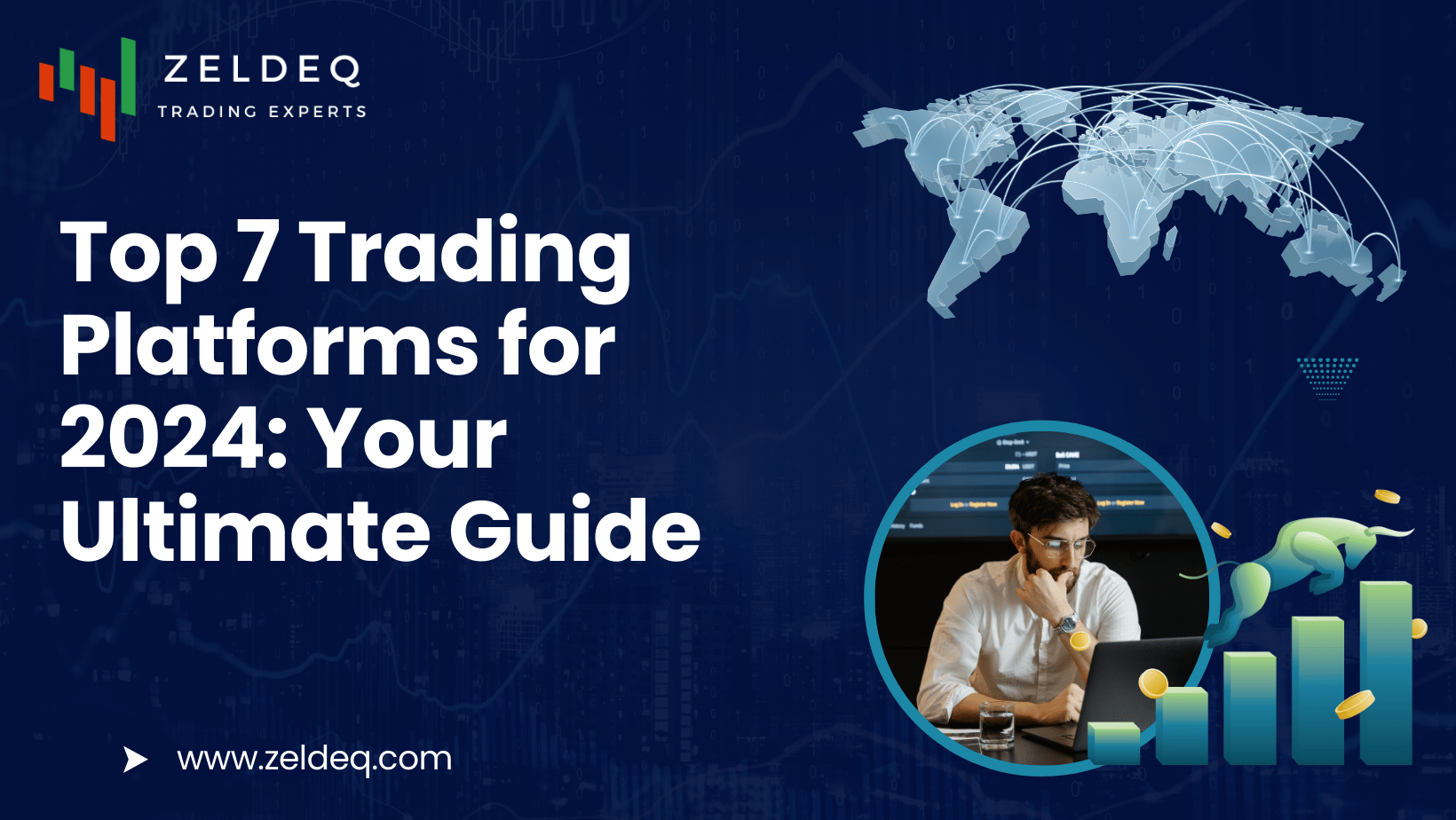Welcome to your ultimate guide on the best trading platforms for 2024! Whether you’re a seasoned trader or just starting your investment journey, choosing the right trading platform is crucial for maximizing your trading success. In this comprehensive article, we’ll dive into the top seven trading platforms, highlighting their features, pros and cons, and what makes each one stand out. Let’s get started!
Table of Contents
- What to Look for in a Trading Platform
- 1. E*TRADE
- 2. TD Ameritrade
- 3. Robinhood
- 4. Charles Schwab
- 5. Interactive Brokers
- 6. Webull
- 7. Fidelity Investments
- FAQs about Trading Platforms
What to Look for in a Trading Platform
When choosing a trading platform, consider the following factors to ensure it meets your trading needs:
- User Experience: A user-friendly interface is essential, especially for beginners. Look for platforms that offer intuitive navigation and easy-to-understand tools.
- Fees and Commissions: Different platforms have different fee structures. Be sure to check for any hidden fees, commission rates, and account minimums.
- Investment Options: Depending on your trading strategy, you may prefer platforms that offer a variety of investment options, including stocks, ETFs, options, and cryptocurrencies.
- Tools and Resources: Advanced charting tools, educational resources, and research capabilities can greatly enhance your trading experience.
- Customer Support: Quality customer service can make a significant difference. Look for platforms that provide multiple support channels.
- Security: Ensure the platform has robust security measures in place, such as two-factor authentication and encryption.
Tip: A seamless user experience can significantly improve your trading efficiency.
Note: Even small fees can add up over time, affecting your overall investment returns.
Insight: The right tools can provide you with valuable insights and help you make informed decisions.
1. E*TRADE
E*TRADE is one of the most well-known trading platforms, offering a comprehensive suite of tools for both beginners and advanced traders.
Features:
- User-Friendly Interface: E*TRADE’s web platform and mobile app are designed for ease of use.
- Research Tools: Access to market research, technical analysis, and educational resources.
- Variety of Investment Options: Trade stocks, ETFs, mutual funds, options, and futures.
Pros:
- No commissions for stock and ETF trades.
- Comprehensive mobile app for trading on-the-go.
- Excellent customer service.
Cons:
- Options trading fees can be higher than some competitors.
2. TD Ameritrade
TD Ameritrade is another top contender, well-regarded for its extensive educational resources and trading tools.
Features:
- Thinkorswim Platform: A powerful trading platform with advanced charting and market analysis.
- Educational Resources: Extensive resources for all levels of traders, including webinars and articles.
Pros:
- No commissions on online stock trades.
- Excellent customer support and educational resources.
- A wide range of investment products.
Cons:
- The Thinkorswim platform can be overwhelming for beginners.
3. Robinhood
Robinhood has disrupted the trading industry with its commission-free trading model, appealing to younger, tech-savvy investors.
Features:
- Mobile-First Approach: Designed primarily for mobile users, making it easy to trade on the go.
- Instant Access: Get access to deposits up to $1,000 instantly.
Pros:
- No commission fees on trades.
- User-friendly mobile app.
- Cryptocurrency trading available.
Cons:
- Limited research tools compared to other platforms.
4. Charles Schwab
Charles Schwab offers a full-service trading platform that caters to both new and experienced investors.
Features:
- Robust Research Tools: Extensive market analysis and research reports.
- Wide Range of Investments: Stocks, ETFs, options, mutual funds, and more.
Pros:
- No account minimums and no commissions on stock trades.
- Excellent customer service and support.
- Comprehensive educational resources.
Cons:
- Some may find the platform less intuitive than others.
5. Interactive Brokers
Interactive Brokers is known for its advanced trading tools and global access, making it ideal for professional traders.
Features:
- Low Margin Rates: Highly competitive margin rates for traders.
- International Trading: Access to markets in multiple countries.
Pros:
- Extensive research and trading tools.
- Low commissions and fees for active traders.
- Strong security measures.
Cons:
- The platform can be complex for beginners.
6. Webull
Webull is a commission-free trading platform that has gained popularity among young investors for its advanced features.
Features:
- Advanced Charting Tools: Offers sophisticated charting and analysis tools.
- Extended Hours Trading: Trade before and after regular market hours.
Pros:
- No commission fees on trades.
- Excellent mobile app with advanced features.
- Strong community support through forums.
Cons:
- Limited educational resources for beginners.
7. Fidelity Investments
Fidelity is a well-established name in the financial industry known for its customer service and investment options.
Features:
- Robust Research Tools: Comprehensive stock analysis, research reports, and educational resources.
- Wide Range of Investment Choices: Stocks, bonds, ETFs, mutual funds, and options.
Pros:
- No commission on stock and ETF trades.
- Excellent customer support.
- Variety of retirement account options.
Cons:
- The platform can be slower than some competitors.
FAQs about Trading Platforms
What is a trading platform?
A trading platform is software that allows investors to buy and sell financial securities. They typically provide tools for analysis, research, and executing trades.
Are trading platforms safe?
Most reputable trading platforms implement strong security measures, including encryption and two-factor authentication, to protect your investments.
Can I trade cryptocurrencies on these platforms?
Some platforms, like Robinhood and Webull, allow cryptocurrency trading, while others focus primarily on traditional securities.
Do I need to pay fees for trading?
While many platforms now offer commission-free trading, there may still be fees for certain types of trades or account maintenance, so always check the fee structure.
How do I choose the best trading platform for me?
Consider your trading experience, investment goals, and the features that matter most to you, such as ease of use, research tools, and customer support.
In conclusion, the best trading platform for you will depend on your individual trading style, needs, and preferences. Each of the platforms discussed offers unique features and benefits, so take your time to explore them thoroughly. Happy trading in 2024!
Also Look For:
- Essential Trading Costs and Fees Beginners Should Know – Understanding the costs associated with trading can help you make better financial decisions.
- Top 5 Essential Brokers for New Traders (2024) – This will help guide you to the best brokers available in 2024.
- 10 Essential Steps to Start Trading Successfully (2024) – A great resource for beginners looking to get started in trading effectively.


